01:55
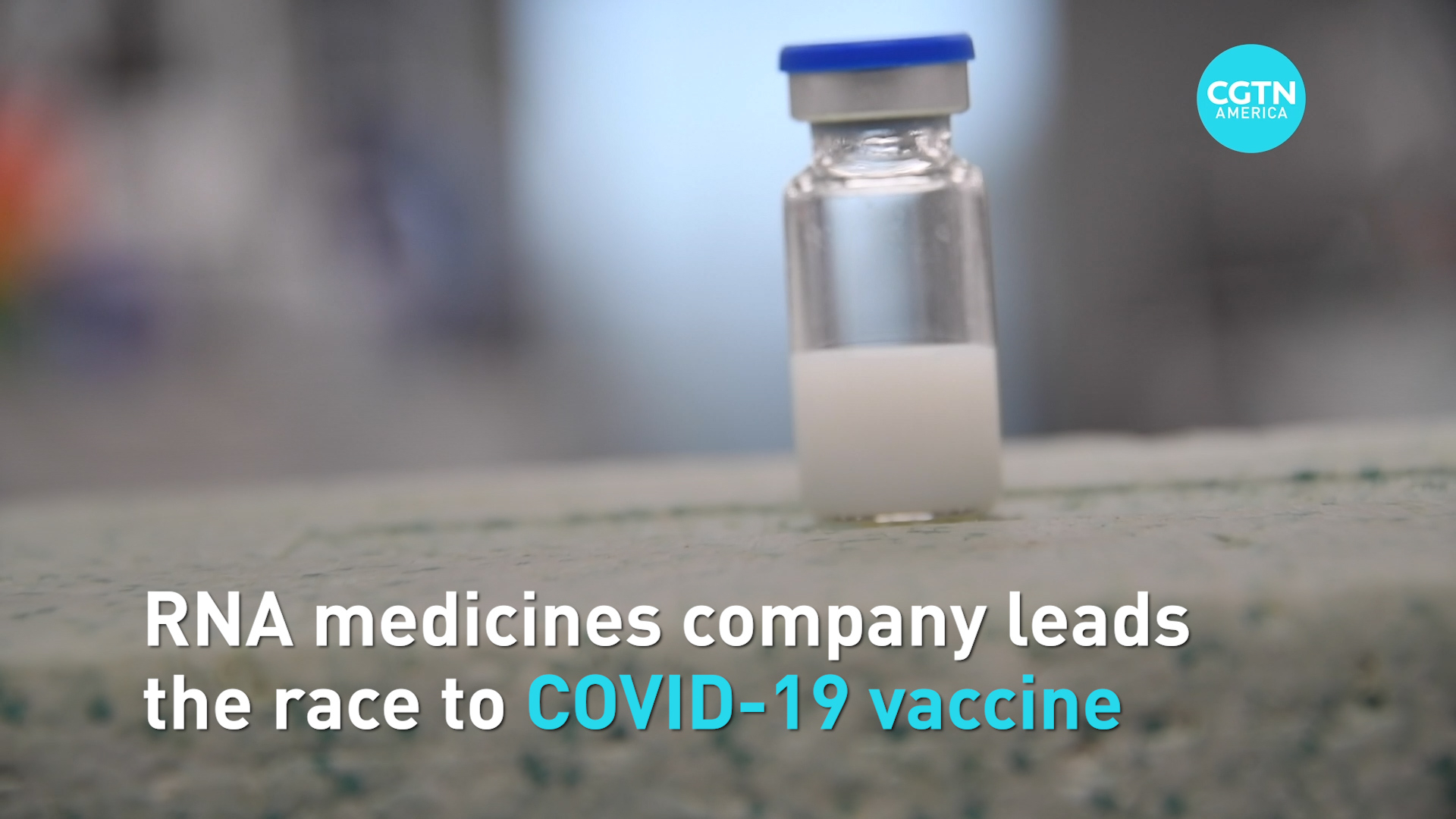
A biotechnology company in San Diego claims to have developed a vaccine for COVID-19 that can immunize an entire country's population with just a single vial.
Arcturus Therapeutics, a laboratory in south California, said its vaccine uses RNA technology to artificially replicate the COVID-19 pathogen, which will boost the body's immune system by giving it the code to combat the real virus.
The vaccine requires the tiniest of amounts, just one microgram per person – or one millionth of a gram – to be effective, claims the company's CEO Joe Payne.
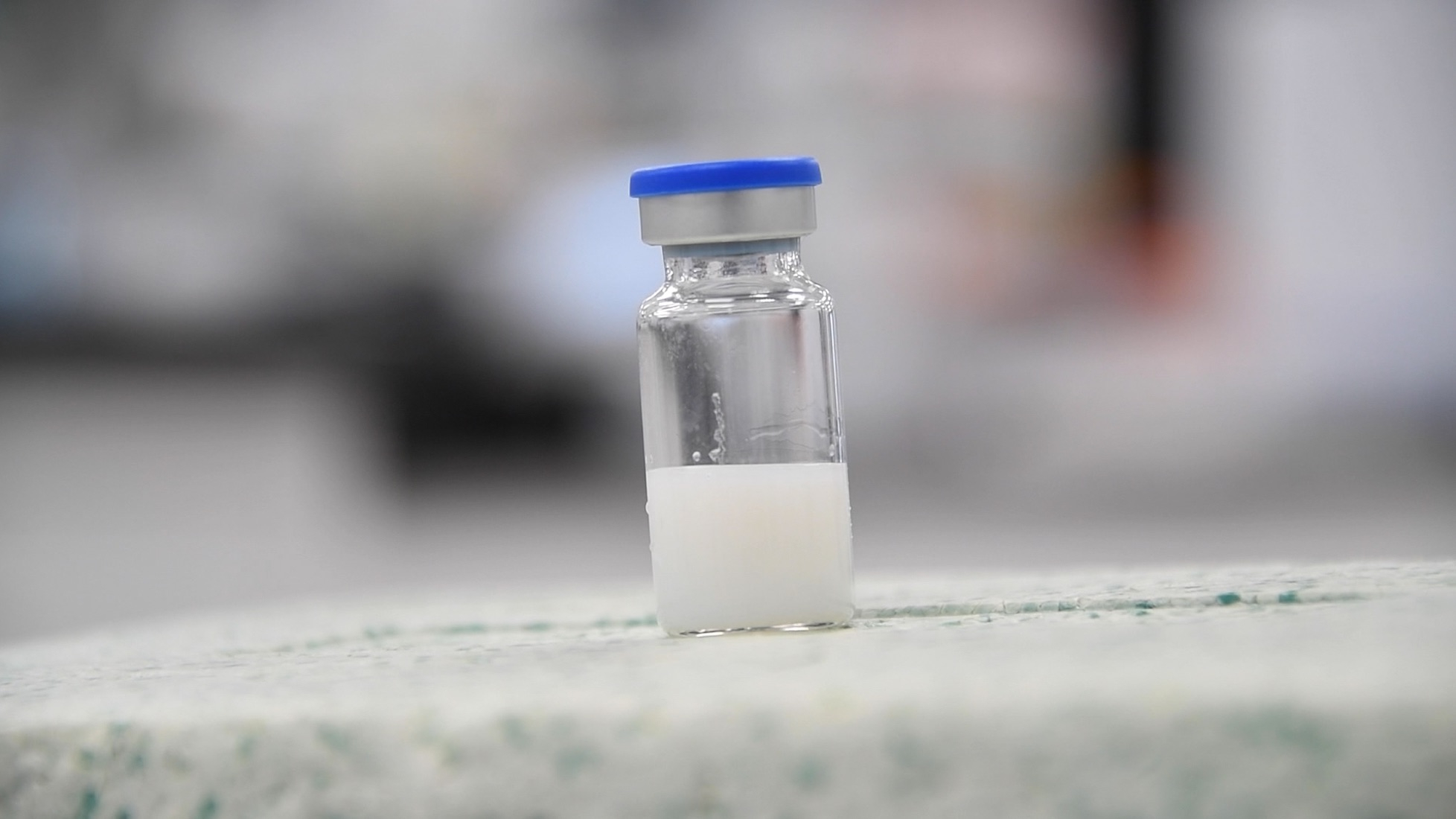
The Arcturus vaccine. /CGTN
The Arcturus vaccine. /CGTN
"If you look at your thumb, that weighs approximately ten grams," he told CGTN. "That's ten million micrograms, and if we make that equivalent amount of RNA technology, that is enough to vaccinate the entire country of Singapore."
The company said it already has a working vaccine, and that Singapore is exactly where its clinical trials will begin next month.
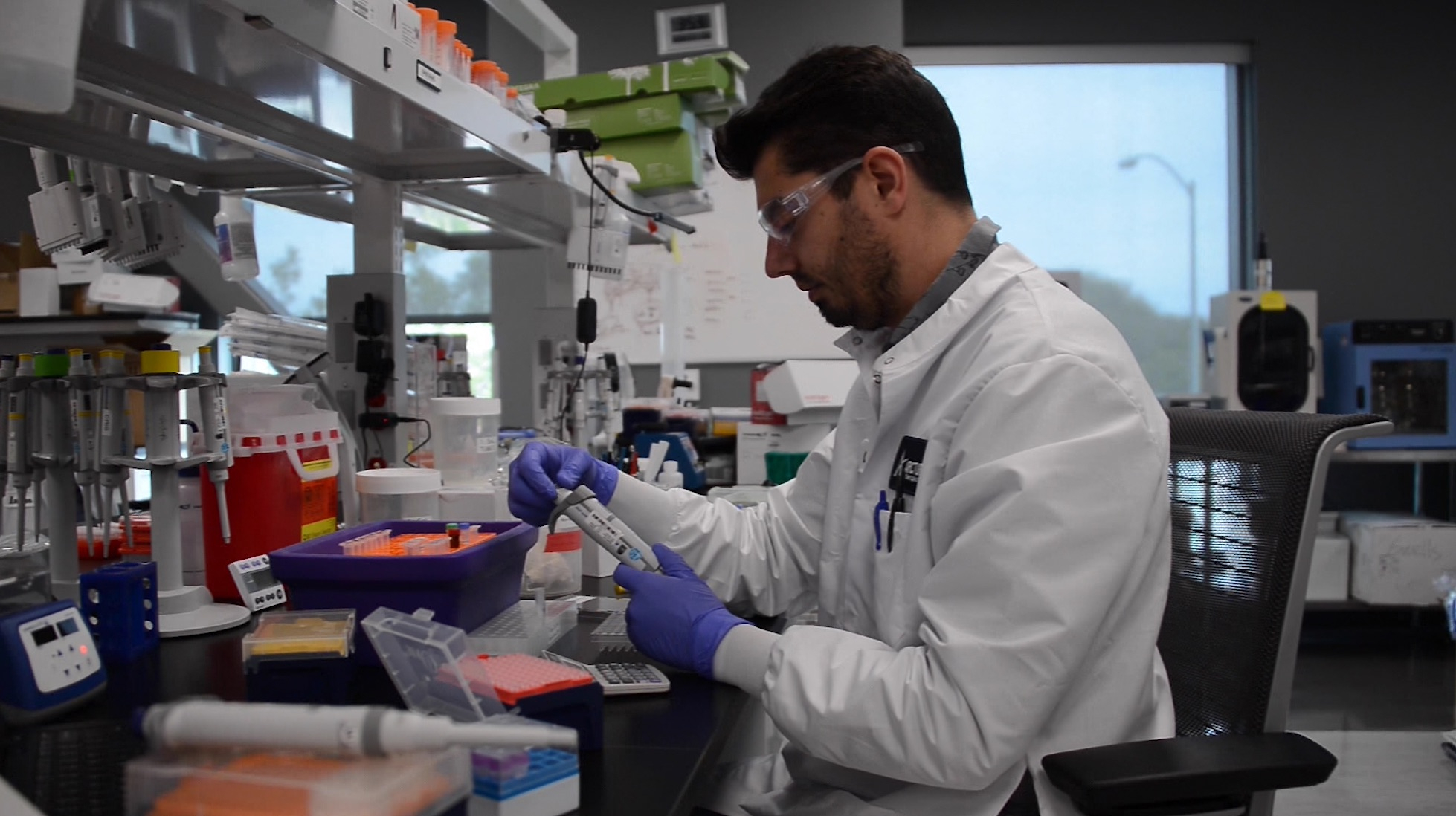
Clinical trials are due to begin next months in Singapore. /CGTN
Clinical trials are due to begin next months in Singapore. /CGTN
Arcturus Therapeutics is working in a joint project with Singapore University and Duke Medical School to bring the product to market.
Clinical trials for vaccines can take years to be completed, but given the urgent need for a COVID-19 vaccine, given the global situation, vaccine programs should be fast-tracked, said Payne.
"I think countries will be very motivated to be as efficient as possible, so that once this is approved it can be distributed rapidly," he said.
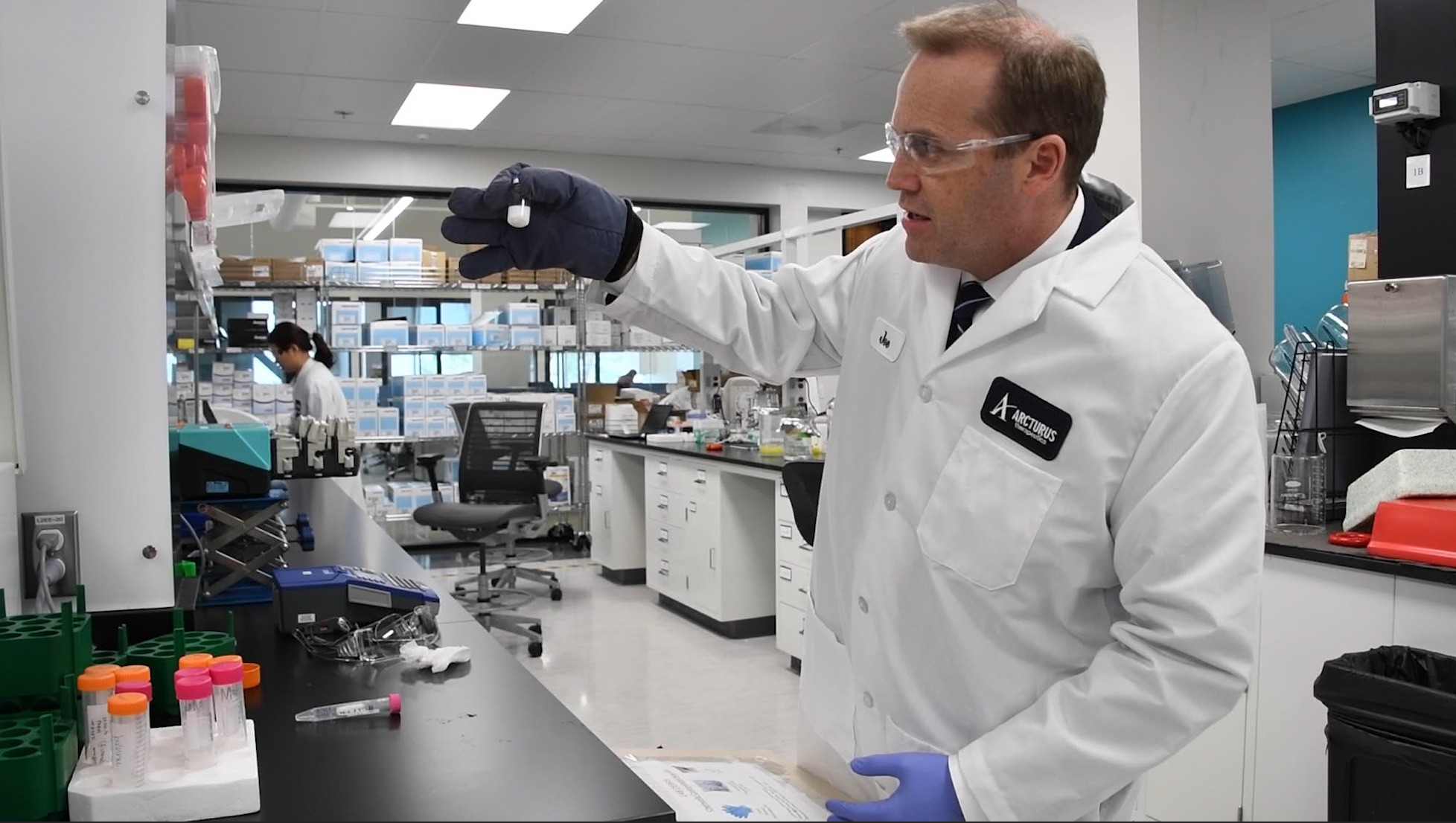
Joe Payne showing off a vaccine he says can immunize 10 million people. /CGTN
Joe Payne showing off a vaccine he says can immunize 10 million people. /CGTN
But his company isn't the only one.
"There are four RNA companies around the world, and we're all doing the same thing. We're in the business of creating the S-antigen, to create the desired immune response in the body," he said. "But we're in four different countries, with four different regulatory agencies monitoring these, and we still have yet to determine which will be the first to be approved. And then, how long thereafter will other countries approve, and allow for mass distribution."
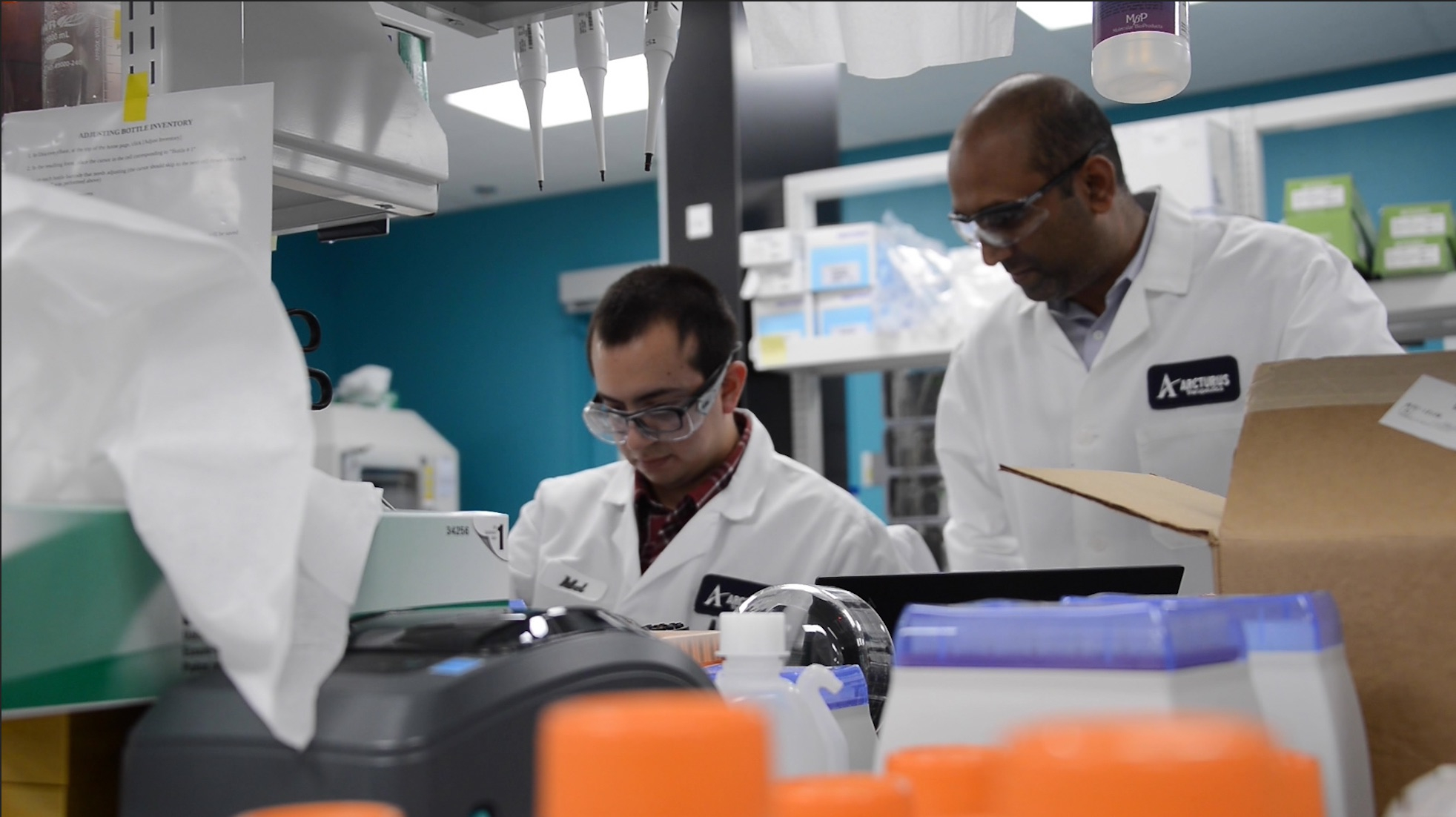
Arcturus lab scientists are working around the clock to develop the vaccine. /CGTN
Arcturus lab scientists are working around the clock to develop the vaccine. /CGTN
And when it comes to manufacturing, that's the simple bit, the company said. Arcturus Therapeutics claims it can manufacture dosages for thousands of people in just three weeks, so it's all about waiting for the drug's official approval.
"It's vital that for a mass population effort that we're injecting something that's not only effective, but also safe. So how long is enough for a regulatory agency to monitor the clinical trial? Is it a year? Nine months? Six months? Three months? Two months? Or shorter? That's to be determined," said Payne.
Having to wait hasn't stopped the company. Neda Safarzadeh, Arcturus Therapeutics' head of public relations told CGTN, "Since Arcturus announced the addition of a COVID-19 vaccine into our pipeline, the level of investor interest has increased dramatically."
With the effects of COVID-19 to be seen in years to come, the race to produce the vaccine around the world may come to define how entire countries and regions manage health protocols and medical distribution.
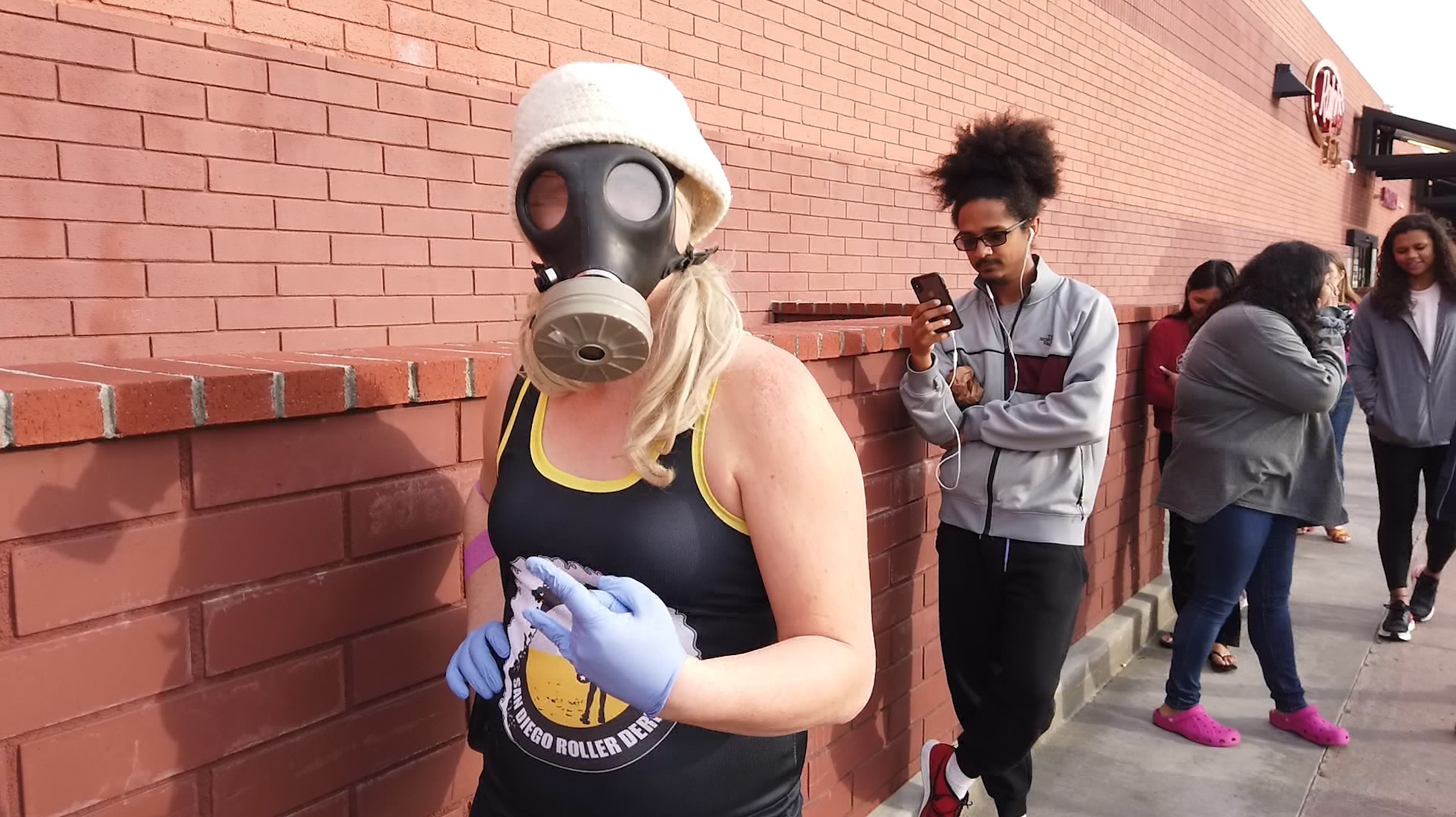
San Diego is currently on lockdown due to COVID-19. /CGTN
San Diego is currently on lockdown due to COVID-19. /CGTN
Global scientists are working against the clock to develop vaccines. But the development of a new vaccine is a long and complex process, which could last over 10 years.
On March 16, the first human trial of the COVID-19 vaccine has been reported to start in the U.S., with four patients getting their first shot at the Kaiser Permanente research facility in Seattle, Washington.
Though many argue that vaccine development should be fast-tracked, otherwise the risk of delaying the advancement of vaccines is much higher than the risk of causing illness in healthy volunteers.
But even if vaccines are allowed to enter into clinical trials, they still have a long way to go. According to U.S. Centers for Disease Control and Prevention, the clinical development of a vaccine is a three-phase process.
In phase one, small groups of people receive the trial vaccine. In phase two, the clinical study is expanded and vaccine is given to people who have characteristics (such as age and physical health) similar to those for whom the new vaccine is intended. In phase three, the vaccine is given to thousands of people and tested for efficacy and safety.
This U.S. vaccine is in its first phase with 45 young, healthy volunteers jabbing different doses of shots. But it will take from a year to 18 months to fully validate any potential vaccine, Dr. Anthony Fauci, director of NIH's National Institute of Allergy and Infectious Diseases said.